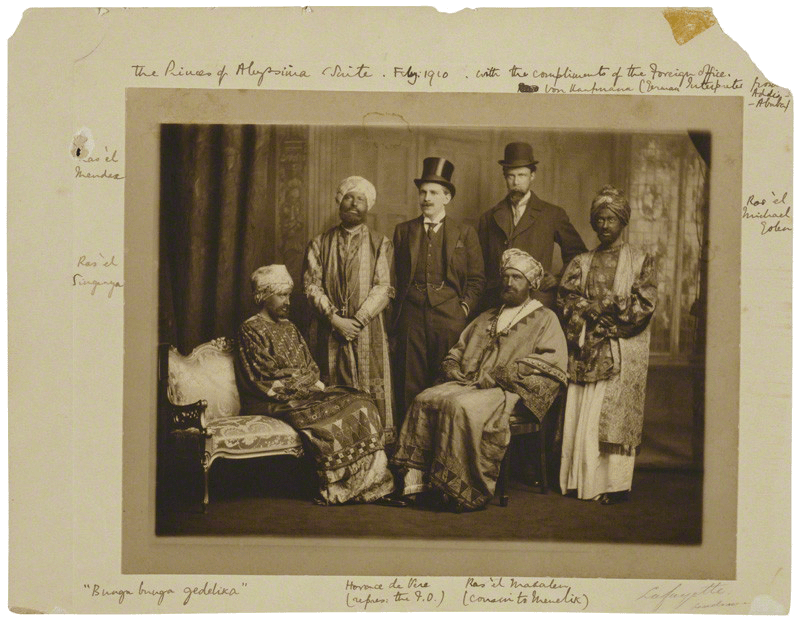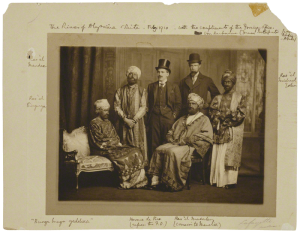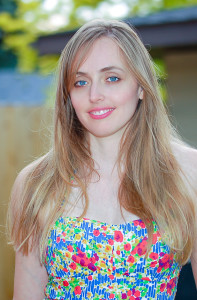The Haunted House: Woolf Meets ECro

No short story out of copyright is safe from ECro. Not even The Haunted House by Virginia Woolf.
Woolfsie, as she was known to all her peers, was an English novelist with a decided slant toward the uppers and downers of life. The cocaines and the opiums. Bipolar disorder might have earmarked her for writing, because as some would have you believe, mental illness and writers are intimate companions. I doesn’t explain my predilection for the wordy words. That honor has been bestowed upon me by Fat Squirrel, the surly mouse who lives in my lingerie drawer. Yes, it’s weird he’s a mouse with the name Fat Squirrel. But no weirder than the pirate hat he wears on his head. And oh! shut the hell up for a moment. The voices are speaking and hate interruption…
Ahem. Speaking of voices, or voices speaking, whatever, Woolfsie heard those as well. She was a character that one, which is a nice way of saying she had issues.

She was keen on writing biographies, was on Hitler’s hit list of Brits he wanted dead, and she was even down with racist antics and cultural appropriation. Such a character! But it was 1910! Everyone was into racism back then. Seriously, go ask your great grandpa about it? Can’t because he’s dead? Might have been his racist heart couldn’t take all this P.C. modernity. Or the fact that he’d be like 127 by now.
I’m about to make Woolfsie’s short story, The Haunted House, a little seedier, as ECro do. If she hadn’t loaded her pockets full of rocks and drowned herself in the River Ouse in 1941, she would have after reading this. Wait, that’s a ludicrious thing to say. She’d never read this at the age of 134 because her eyesight would be really poor, just like my SEO ranking for this blog post. Also, Fat Squirrel would never let her near this page, knowing her history of depression and desire for acceptance from readers and writers alike. Fat Squirrel knows ALL. Yeah, even about that. Don’t try to pretend you don’t know what he’s talking about when he asks you about Des Moines back in aught eight. For shame.
The Haunted House
By Virginia Woolf (and ECro)
Whatever hour you woke there was a door shutting. From room to room they went, hand in hand, lifting here, opening there, making sure–a ghostly couple. “Here we left it,” she said. And he added, “Oh, but here too!” “It’s upstairs,” she murmured. “And in the garden,” he whispered. “Quietly,” they said, “or we shall wake them.” (I know what “it” is. Just let this play out a bit more because the suspense needs to build. It’s part of my art.)
But it wasn’t that you woke us. Oh, no. “They’re looking for it; they’re drawing the curtain,” one might say, and so read on a page or two. “Now they’ve found it,’ one would be certain, stopping the pencil on the margin. And then, tired of reading, one might rise and see for oneself, the house all empty, the doors standing open, only the wood pigeons bubbling with content and the hum of the threshing machine sounding from the farm. “What did I come in here for? What did I want to find?” My hands were empty. “Perhaps its upstairs then?” The apples were in the loft. And so down again, the garden still as ever, only the book had slipped into the grass. (*bites tongue, punches own thigh with fist*)
But they had found it in the drawing room. Not that one could ever see them. The windowpanes reflected apples, reflected roses; all the leaves were green in the glass. If they moved in the drawing room, the apple only turned its yellow side. Yet, the moment after, if the door was opened, spread about the floor, hung upon the walls, pendant from the ceiling–what? My hands were empty. The shadow of a thrush crossed the carpet; from the deepest wells of silence the wood pigeon drew its bubble of sound. “Safe, safe, safe” the pulse of the house beat softly. “The treasure buried; the room . . .” the pulse stopped short. Oh, was that the buried treasure? (Oh man. Wait for it…)
A moment later the light had faded. Out in the garden then? But the trees spun darkness for a wandering beam of sun. So fine, so rare, coolly sunk beneath the surface the beam I sought always burned behind the glass. Death was the glass; death was between us, coming to the woman first, hundreds of years ago, leaving the house, sealing all the windows; the rooms were darkened. He left it, left her, went North, went East, saw the stars turned in the Southern sky; sought the house, found it dropped beneath the Downs. “Safe, safe, safe,” the pulse of the house beat gladly. ‘The Treasure yours.”
The wind roars up the avenue. Trees stoop and bend this way and that. Moonbeams splash and spill wildly in the rain. But the beam of the lamp falls straight from the window. The candle burns stiff and still. Wandering through the house, opening the windows, whispering not to wake us, the ghostly couple seek their joy. (Oh yeah they do…)
“Here we slept,” she says. And he adds, “Kisses without number.” “Waking in the morning–” “Silver between the trees–” “Upstairs–” ‘In the garden–” “When summer came–” ‘In winter snowtime–” “The doors go shutting far in the distance, gently knocking like the pulse of a heart.
Nearer they come, cease at the doorway. The wind falls, the rain slides silver down the glass. Our eyes darken, we hear no steps beside us; we see no lady spread her ghostly cloak. His hands shield the lantern. “Look,” he breathes. “Sound asleep. Love upon their lips.” (It’s coming!!!)
Stooping, holding their silver lamp above us, long they look and deeply. Long they pause. The wind drives straightly; the flame stoops slightly. Wild beams of moonlight cross both floor and wall, and, meeting, stain the faces bent; the faces pondering; the faces that search the sleepers and seek their hidden joy. (One more paragraph…)
“Safe, safe, safe,” the heart of the house beats proudly. “Long years–” he sighs. “Again you found me.” “Here,” she murmurs, “sleeping; in the garden reading; laughing, rolling apples in the loft. Here we left our treasure–” Stooping, their light lifts the lids upon my eyes. “Safe! safe! safe!” the pulse of the house beats wildly. Waking, I cry “Oh, is this your buried treasure? The light in the heart.” (No, it’s not light in the heart, Virginia. It’s semen. Now read the story again. You’re welcome.)
The End
Your life is infinitely better for reading that. You better have read it again, once you knew what “it” was. Because funny. And because Fat Squirrel demands it.
